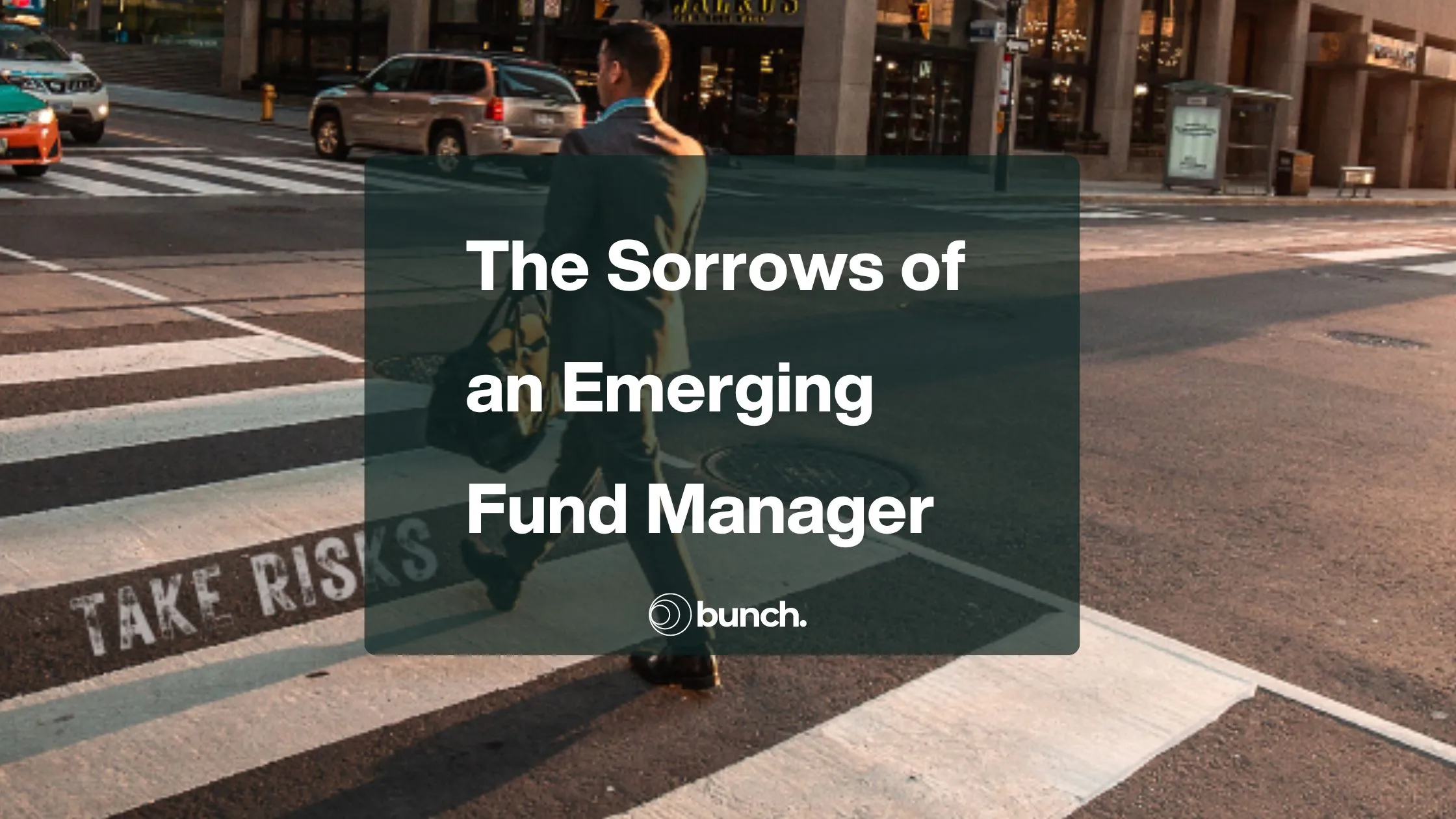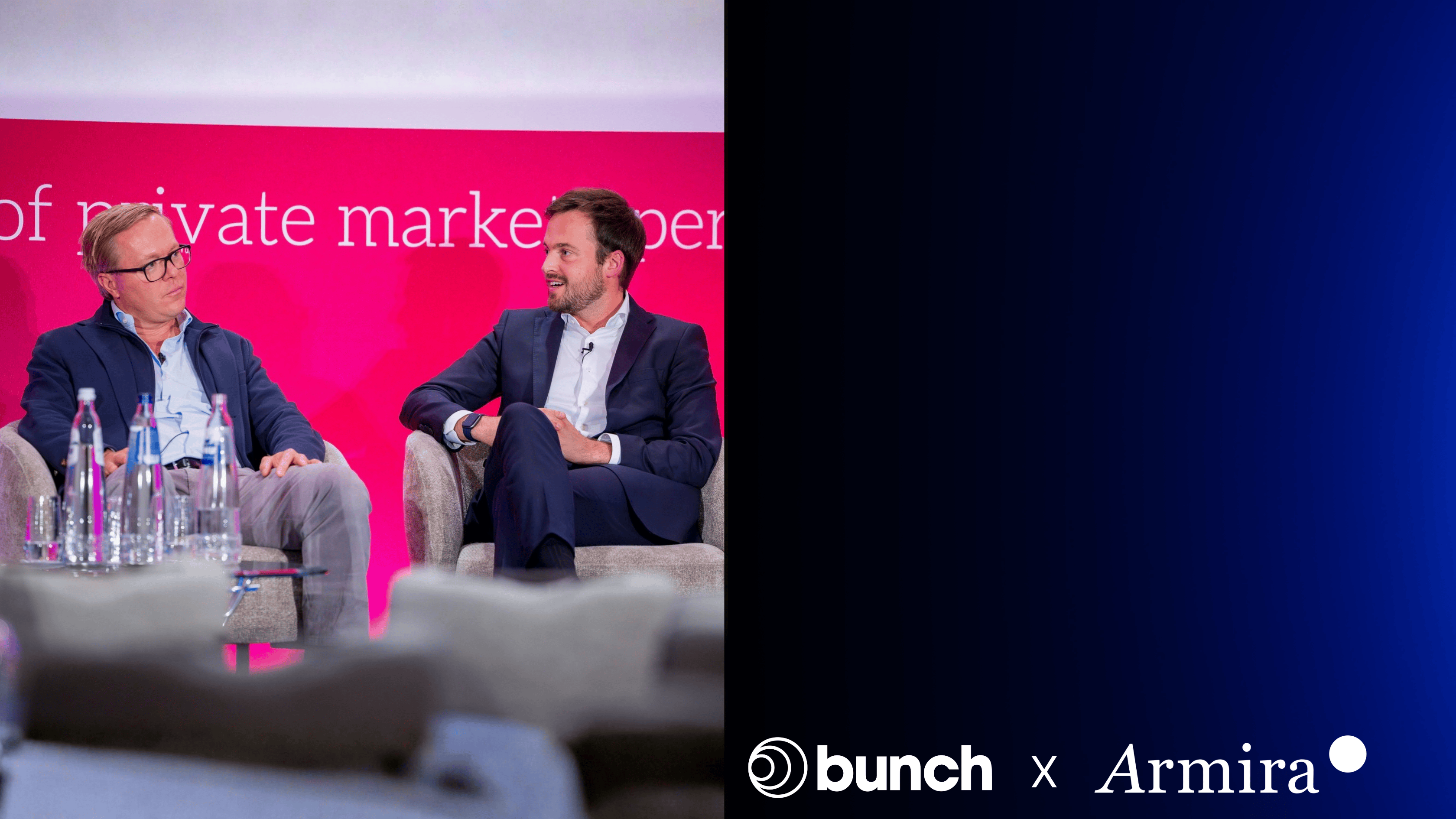Contents
You're a smart, ambitious individual ready to become one of the best investors in Europe. You've got the drive, the passion, and the entrepreneurial spirit. The plan sounds simple: raise capital from a few people and institutions that back you, find stellar founders and startups, and back them. After all, you've been doing this for years and have the network to show for it. You receive soft commitments from the first people that say: “awesome idea, I would love to invest!”. But as you start to explore your fund setup, you soon realise that there are a lot of administrative and legal challenges lurking just around the corner. This is a familiar tale, one that many emerging VCs can relate to.
When building our fund offering, we interviewed emerging VCs about their expectations and experiences with their first fund. We summarized the main challenges in this framework and, spoiler alert - we built the platform to solve all your admin problems.
Let’s start from the beginning:
The Legal Setup
When diving into the world of fund management, emerging managers dream big: envisioning a US structure or kicking things off in Luxembourg. Unfortunately, things are not that easy. There are a large number of factors to consider, from how you run your daily business, to taxation, but also your investor base and you should get legal advice on this.
A tip from one of the fund managers we spoke to:
“As an emerging VC, you should focus on a local structure and keep things as plain vanilla as possible - especially when it comes to setting up your LPA (Limited Partnership Agreement). Otherwise, your expected costs for the legal setup can quickly grow into six figures.”
The Financial Services
Each of your fund-related entities will need a bank account. Unexpectedly, this is not such a straightforward task especially when it comes to your dedicated fund entity - you need to find a bank that is familiar with fund business in order to make your processes smooth further down the line. While this alone is already a difficult find, expect that most of these banks also lack digital expertise and value-added products such as affordable FX and credit lines.
“I tried to set up my fund bank account with a large German bank, but they told me: no way! So I had to go to a regional bank but thy have no clue what I am doing.”
The Fundraising
Once you are properly established as a fund manager, it's time to fully focus on fundraising. You have to create your fundraising documents, set up your data room and manage your LP CRM. You need to also know what you are allowed to do here, as marketing is a regulated activity. The biggest challenge is ensuring a top-notch LP experience - this will help to close LPs and build lasting relationships (beyond the current fund, and into the future). One thing to consider here is that fundraising process has become significantly more difficult in the current market environment, so make sure to bring your A game and also stay positive.
“It is especially difficult to get LPs in your first closing - a lot of investors want to wait for the second or third close.”
The Investor Onboarding and KYC & AML
Once your LPs are ready to invest and you approach your first closing, you need to think about your onboarding process. LPs must complete the necessary SubDocs, sometimes tackling investor qualification questionnaires and supplying information for KYC & AML compliance. Simultaneously, as the fund manager, you diligently review these documents, accept the LPs, handle the registration with the Commercial Register, and maintain open lines of communication throughout the entire process. This is unfortunately often a “print out a PDF, fill it out, and scan it”-process, which is a) bad for LP experience; b) a source of errors; and c) creates a lot of effort when you need to use the information on these questionnaires.
At the same time, you need to figure out how to accept investors in a compliant way. Acronyms such as UBO, KYC and AML will become part of your daily vocabulary (check out our glossary). As a fund manager, you will have to do these checks periodically. In order to do this efficiently, you should start with an AML guideline and carefully record every result and decision you take.
The Fund Administration & Reporting
Once the LPs successfully onboarded, it's time to initiate the first capital call. Calculating the right amounts for each LP is a task that requires a high level of detail-orientation and accuracy. This gets more complicated if you have multiple fund closes. Securely transmitting these capital call details should always be the highest priority - never send that information via email to avoid damage caused by phishing attacks.
Additionally, as a diligent fund manager, you're also responsible for crafting comprehensive quarterly reports. These reports go beyond just performing the fund accounting; they also encompass information on the portfolio companies. Ideally, this information is presented in an easily digestible and digital format.
“When building out our fund I wanted to ensure that I have the best-possible LP experience and data quality. This will ensure that LPs will also invest in the second and third fund.”
The Accounting
When it comes to reporting, GAAP accounting and tax returns play a crucial role. To ensure everything is accurately recorded, it's essential to enlist the expertise of a tax accountant. They will guide you in properly booking all financial transactions, from cash inflows and outflows to unpaid bills and unbilled expenses. Be prepared for a significant effort, particularly during quarterly and annual closes.
The Regulatory Compliance
Regulatory compliance is key. Brace yourself for a series of filings, including submissions to the central bank, regulator, and tax authorities. For European fund managers, AIF & AIFM reports, CRS, FATCA, and more may come into play. Moreover, if you've opted for an ESG fund, you'll have an additional layer of reporting to navigate.
“The AIF reporting is an absolute nightmare. Filling out these files can take you so much time.”
The Audit
Regular audits are also increasingly a necessity to run your fund in a compliant way. The specific type of audit required depends on the license held, which may include audits for your manager entity or the fund itself (and sometimes your LPA may also require audits). In these audits not only your numbers are checked, but your AML processes can also undergo thorough examination. The purpose of these audits is to ensure accuracy, compliance, and robust risk management. They provide a comprehensive evaluation of your operations, financials, and adherence to regulatory requirements.
Conclusion
You may now ask yourself: how do I do all of these things? Stepping into the world of venture capitalism and fund management might seem like a daunting journey filled with endless obstacles.
But don’t worry - at bunch we are building a platform that empowers you to set up your fund quickly and support you in fundraising and onboarding so that you can focus on finding groundbreaking companies to invest in, while bunch provides seamless end-to-end administrative services. If you are thinking about setting up your first fund, feel free to reach out to us - we have something to show you!
Disclaimer: The content presented herein is solely for informational and discussion purposes only. It is not intended to serve as legal, tax or financial advice or as an endorsement of any investment strategy. bunch does not provide legal, tax or financial advice. Readers should not base their investment decisions on the content presented herein or any other bunch-generated content alone and should seek appropriate professional advice. Nothing contained herein shall constitute or imply an offer to sell, purchase or enter into any transaction in respect of securities. The content contained herein is subject to change without notice. While we aim to present accurate and up-to-date information as part of bunch’s content, we undertake no obligation to update our content from time to time.
The best already build on bunch





























